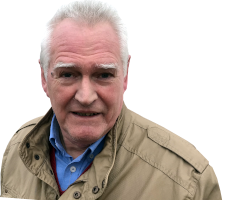search
date/time
 | Yorkshire Times Weekend Edition |

Mike Tilling
Arts Correspondent
3:02 AM 23rd October 2023
arts
Review
Classical Music: Transfigured – Kaleidoscope Chamber Collective
Transfigured – Kaleidoscope Chamber Collective Chandos
Alexander Zemlinsky Maiblumen blühten überall (for soprano and string sextet); Anton Webern: Piano Quintet; Alma Mahler (arr. Tom Poster): Songs (for soprano and string sextet) Die Stille Stadt; Laue Sommernacht; Bei dir ist es traut; Erntelied; Arnold Schoenberg Verklärte Nacht (for string sextet).
Francesca Chiejina (soprano), Elena Urioste (violin), Grace Park (violin), Juan-Miguel Hernandez (viola), Kyle Armbrust (viola), Laura van der Heijden (cello), Tony Rymer (cello), Tom Poster (piano)
Chandos CHAN 20277
https://www.chandos.net
Alexander Zemlinsky Maiblumen blühten überall (for soprano and string sextet); Anton Webern: Piano Quintet; Alma Mahler (arr. Tom Poster): Songs (for soprano and string sextet) Die Stille Stadt; Laue Sommernacht; Bei dir ist es traut; Erntelied; Arnold Schoenberg Verklärte Nacht (for string sextet).
Francesca Chiejina (soprano), Elena Urioste (violin), Grace Park (violin), Juan-Miguel Hernandez (viola), Kyle Armbrust (viola), Laura van der Heijden (cello), Tony Rymer (cello), Tom Poster (piano)
Chandos CHAN 20277
https://www.chandos.net

Leaving narratives aside, the music—some well-known, some obscure—is organised by Kaleidoscope, a string sextet consisting of two violins, two violas, and two cellos, with Tom Poster on piano and soprano Francesca Chiegina.
First up is Zemlinsky, but since I love encountering those moments when one art form enlightens another, I’ll start with Alma Mahler.
The story goes that when Gustave Mahler married Alma Schindler, she had already embarked on a career in music. Zemlinsky was one of her teachers and one of her many lovers. However, in what was an appalling ultimatum, even for those days, Gustav said that she should forget all about this composing business; she was his wife now, and her job was to look after him. Novelist Colm Toibin uses her as a minor character in his novel The Magician, painting a most unflattering portrait of an entitled, egotistical monster. An interesting background when listening to her four songs.
The collective name for the four (although there were originally five) is Werfel, the name of her third and final husband. Some are as short as two minutes, but none are very long. Francesca Chiegina, a Wagnerian soprano, has the heft in her voice to do justice to songs with lyrics from different poets and titles such as Die Stille Stadt (the Quiet City) and Laue Sommernacht (Mild Summer Night).
Far more famous is Schoenberg’s Verklärte Nacht (Transfigured Night). The narrative here, supplied by the poetry of Richard Dehmel, concerns a young woman’s confession that her pregnancy is the result of a brief liaison with a casual acquaintance. Surprisingly, her current love forgives this indiscretion and looks forward to a happy life together.
Coming from the man who inflicted atonalism on audiences, the music is lyrical and attractive. The portrait of the night is refined and suggestive, more reflective than the somewhat racy original poetry.
Knowing nothing of Zemlinsky's music, I approached it with some trepidation. However, I was pleasantly surprised by the appeal of a highly melodic opening. Discord does creep in, but contrasts with more harmony, moving from a pianissimo opening and circling back to an understated conclusion.
For the Webern, the piano leads and, on the surface, is a less attractive piece than the Zemlinsky. However, again, I was surprised by the extent to which he worked melody into certain passages.
I must confess that the music on this disc took me by surprise. Chamber music as a genre contrasts significantly with my other musical passion, opera.
Opera functions on a large scale, which is animated, colourful, hot, and (it has to be admitted) sometimes overblown. Chamber music, on the other hand, is generally tranquil and calming to the nerves. Despite these antimonies, I love them both.
The Transfiguration CD offers a first-rate fulfilment of one half of my musical life. I look forward to more in the future.